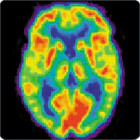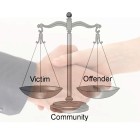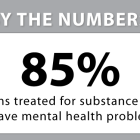Senate Hearing on Juvenile Code
|
The Senate Judiciary Committee will discuss the juvenile code rewrite bill SB 292, Article 6 next Monday at 2 pm in room 450 at the Capitol. Article 6 is controversial because it deals with Children in Need of Services (CHIN’s). These kids are considered status offenders under Georgia law. Currently, they are treated the same as delinquent kids. Article 6 would provide status offenders with family oriented services geared toward fixing their problems. Some of the agencies expected to attend include the Truancy Intervention Project, the Office of Child Advocacy and the Department of Behavioral Health. Attorney Julia Neighbors from Just Georgia wrote a passionate argument for Article 6:
“Current research and best practices now suggest that youth and families in crisis require a faster response than courts can offer and that juvenile justice systems are often ill-equipped to provide the services these youth and families need. ”
For more on SB 292:
Long Road to Juvenile Code
SB 292: Rethinking 17 vs. 18
Other Bills Regarding Juveniles






